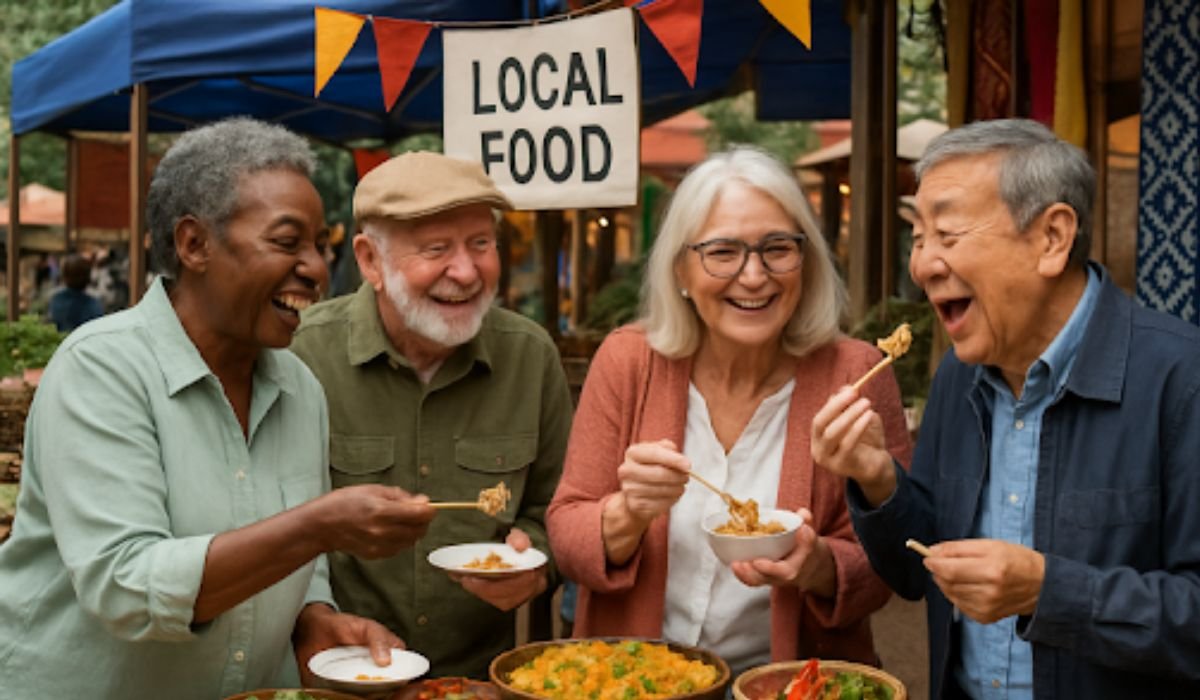Key Takeaways
- Culinary travel enables seniors to experience diverse cultures firsthand through their local food traditions.
- Participating in hands-on activities, such as cooking classes and food tours, fosters cultural understanding and social engagement.
- Exploring markets and local dining spots creates authentic travel experiences far beyond conventional sightseeing.
Travel opens doors to new perspectives, but nothing immerses seniors deeper into a culture than experiencing its food firsthand. Culinary travel introduces not only flavors and aromas unique to different regions but also the rituals and heritage behind every meal. From discovering traditional recipes to engaging with locals, these experiences foster lifelong memories and genuine connections. Unique journeys like those shared by Claudette Spinelli reveal how much food can shape our sense of place and history.
Beyond tourist spots, seniors enjoy authentic experiences through local foods, cooking classes, and markets. Culinary adventures involve participation, storytelling, and building friendships. Markets reveal daily life and customs. Such travel offers access to healthier, fresher ingredients and exciting flavors, like Tuscan pasta or Thai curries, fostering appreciation for food traditions and their values. Each trip helps seniors connect globally, finding joy, wellness, and cultural understanding through food. This way of exploring enriches both palate and soul.
Benefits of Culinary Travel for Seniors
- Cultural Immersion: Tasting signature local dishes provides immediate insight into regional history, values, and traditions. Food often reflects centuries-old customs, agricultural practices, and celebrations.
- Social Engagement: Participating in communal cooking or dining creates easy opportunities for making new friends among locals and fellow travelers, enriching the travel experience with meaningful relationships.
- Healthier Habits: Many destinations highlight fresh produce, herbs, and wholesome preparation methods, inspiring seniors to try diverse, nutritious ingredients that can improve overall wellness.
Top Destinations for Culinary Adventures
- Tuscany, Italy: Famous for its earthy, authentic Italian cuisine, including olive oil, wines, and classic pasta. Locally sourced ingredients and farm-to-table experiences abound in its beautiful countryside.
- Chiang Mai, Thailand: Renowned for vibrant street food scenes and hands-on Thai cooking classes that reveal the intricacies of balancing flavors through fresh herbs and spices.
- San Sebastián, Spain: A culinary hotspot offering a mesmerizing array of pintxos bars, where the Basque tradition is celebrated with creative small plates and world-class seafood.
Participating in Local Cooking Classes
Local cooking classes turn tourists into temporary insiders, sharing treasured recipes with seasoned chefs and home cooks. In Tuscany, for instance, seniors can stay at rustic farmhouses and learn techniques like making fresh tagliatelle or pressing olive oil right from the source, often culminating in convivial dinners paired with local wines. These immersive sessions teach the stories behind regional ingredients and provide practical skills that seniors can bring home to recreate meaningful dishes for friends and family.
Exploring Local Markets and Street Food
Markets are the heartbeat of any community, revealing daily rituals, local ingredients, and friendly chatter among vendors. In Bangkok, Thailand, sensory-packed street food scenes feature a diverse array of dishes, from sizzling satay to tropical fruit desserts, allowing visitors to sample countless flavors in a single stroll. Iconic dishes like pad Thai, mango sticky rice, and aromatic curries are best enjoyed where locals queue. These explorations let seniors observe, taste, and appreciate local foodways—making every bite a memory.
Joining Guided Food Tours
Guided food tours offer structured, in-depth experiences, led by passionate locals who share vibrant stories and historical context along every stop. In places like San Sebastián, these walking feasts take seniors through a carefully curated selection of pintxos bars, unveiling the traditions behind Basque small plates and the evolution of local dining culture. Along the route, travelers sample beloved specialties, enjoy illuminating commentary, and gain access to lesser-known culinary gems that might be missed when wandering solo.
Tips for Planning a Culinary Trip
- Research Culinary Hotspots: Consider destinations that have received international acclaim for their food culture, or places with rich agricultural heritage and local dining traditions.
- Check Accessibility: Look for accommodations and experiences tailored to seniors’ comfort and mobility, such as accessible walking routes and dietary flexibility.
- Book Early: Many popular classes, tours, and market excursions fill up fast—reserving ahead of time ensures access to the most sought-after experiences.
- Build in Flexibility: Leave time in the itinerary for spontaneous market strolls, impromptu tastings, or local recommendations from new friends.
Conclusion
Culinary adventures empower seniors to explore the world in advantageous ways. Tasting local flavors, engaging with heritage crafts, joining in on lively markets, and sharing meals with new acquaintances foster an understanding of culture that goes far beyond sightseeing. Through travel that prioritizes food, seniors savor both the essence of a destination and the joy of living fully present in each delicious moment.
YOU MAY ALSO LIKE: TravelsForNow.com: Your Secret Weapon for Last-Minute Adventures That Feel Planned for Months

